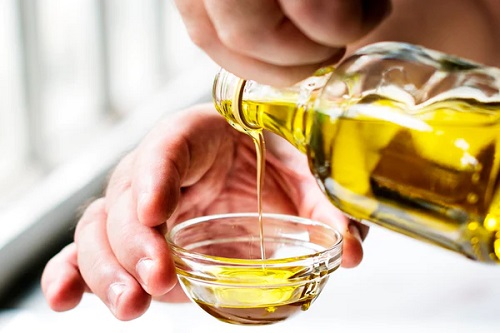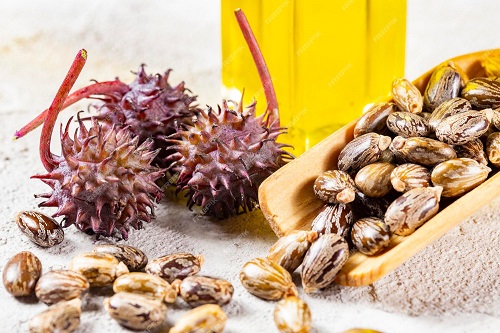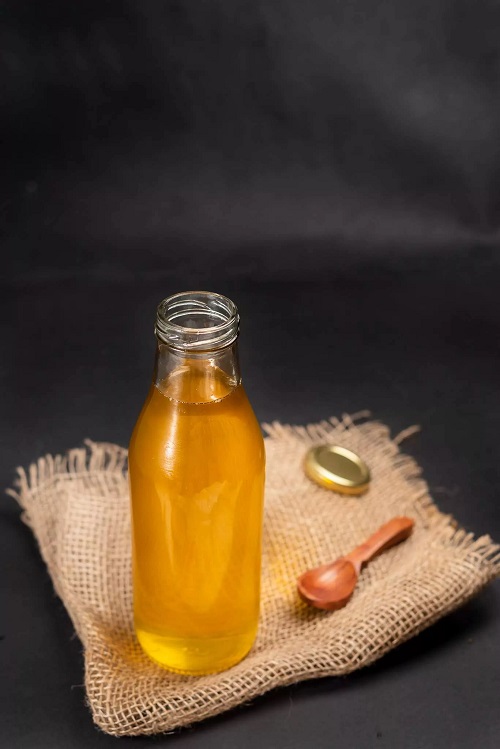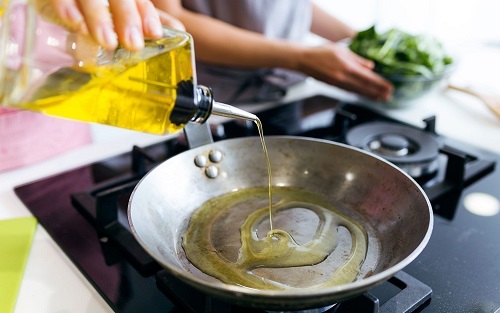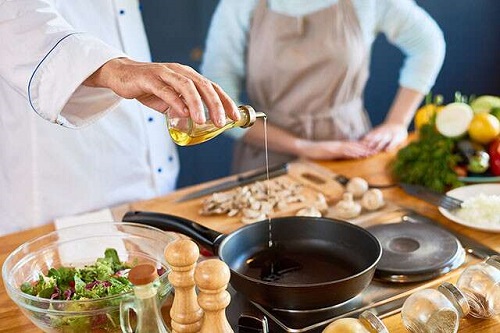Can You Cook With Castor Oil? Discover the science behind this topic, and explore its safe uses in the kitchen!
Castor oil is a versatile liquid that has found a multitude of applications—from skincare products to industrial lubricants. You may have even heard about its medicinal properties, particularly its effectiveness as a laxative. But a question that frequently emerges is, “Can you use castor oil for cooking?” This article explores the scientific aspects and health implications to offer a comprehensive answer to this question.
Get the Best Castor Oil vs. Argan Oil Guide here
Understanding Castor Oil
First, let’s clarify what castor oil is. Extracted from the seeds of the Ricinus communis plant, castor oil is primarily composed of ricinoleic acid, a monounsaturated fatty acid. Due to its chemical structure, it has been widely used in cosmetics, soaps, and even as a lubricant in industrial settings.
Learn about the Benefits of Castor Oil for Eyelashes here
Can You Cook With Castor Oil?
Scientifically, the answer leans towards ‘No’ for a number of reasons.
First, castor oil is mainly composed of ricinoleic acid, which accounts for about 90% of its fatty acid content. While this compound has beneficial anti-inflammatory and analgesic properties when applied topically, its high concentration when ingested can lead to digestive issues.
According to studies, ricinoleic acid can induce nausea, vomiting, and severe diarrhea, and dehydration or electrolyte imbalance in extreme cases.
The risk of ricin contamination is another concern. Ricin is a toxin found in the seed coat of the castor bean. Even trace amounts of this substance can be fatal if ingested, inhaled, or injected, as confirmed by the CDC. Although commercial manufacturing processes remove most of this toxin, the possibility of residual ricin remains a health risk.
Lastly, it’s important to consider regulatory standards. For an oil to be considered safe for cooking, it must be certified as food-grade by agencies such as the FDA or USDA. Most commercial castor oils have not undergone the rigorous testing needed to attain this certification.
Note: Though rare, food-grade castor oil does exist. If you’re considering using castor oil for internal consumption, ensure that it’s certified as food-grade by a credible third-party. Even so, consult a healthcare provider before ingesting it, given the oil’s unique fatty acid profile.
Potential Side Effects of Using Castor Oil in Cooking
If you are contemplating using castor oil for cooking, it’s essential to be aware of the potential side effects, which include:
- Digestive Issues: The high ricinoleic acid content can cause cramps, diarrhea, or other gastrointestinal discomfort.
- Toxicity: Although the risk is generally low due to commercial processing, there is a potential for the presence of ricin, that can lead to severe poisoning and even death if ingested.
- Allergic Reactions: Some people may experience an allergic reaction to castor oil, leading to skin rashes, hives, and swelling.
- Interaction with Medications: Castor oil may interfere with the absorption of certain medications, affecting their efficacy.
- Nutrient Malabsorption: Long-term internal use could interfere with the body’s ability to absorb essential nutrients from food.
Get the Best Castor Oil vs. Coconut Oil Guide here
Castor Oil Uses in the Kitchen
While castor oil is unfit for cooking, it does have some applications in the kitchen that do not involve ingesting it. Here are a few ways you can use castor oil in the kitchen:
- Preserving Kitchen Utensils: Castor oil can be used to preserve wooden kitchen utensils and cutting boards. A thin coat of food-grade castor oil can help to maintain the wood’s moisture, preventing it from cracking over time.
- Lubricating Kitchen Appliances: The high viscosity of castor oil makes it an effective lubricant for kitchen appliances like mixers, grinders, and even squeaky door hinges. Just a few drops can keep things running smoothly.
- Removing Sticky Labels and Residue: Castor oil is effective in removing stubborn sticky labels and adhesive residue from glass jars or plastic containers. Apply a small amount, let it sit, and then scrub off the sticky substance.
- DIY Soap Making: For those who make homemade soap, castor oil could be an effective addition to recipes for its moisturizing properties. However, ensure you’re using food-grade castor oil if your soap will come in contact with food utensils or preparation surfaces. Here are some DIY ideas.
- Surface Cleaning: A mixture of castor oil and a citrus essential oil can make a good cleaner for countertops and stainless steel appliances. It can help in removing grime while leaving a pleasant scent.
- Organic Pest Control: Castor oil can be used in natural repellents for certain pests like moles or voles. It’s an active ingredient in some non-toxic, environmentally-friendly repellents.
Learn about Seasoning Cast Iron with Coconut Oil here
Conclusion
While castor oil may offer various benefits in skincare and industrial applications, it’s not fit for cooking due to its high ricinoleic acid content, potential for ricin presence, and lack of food-grade certification in most commercial products.
Always prioritize safety and consult a healthcare provider if you are thinking to use any unconventional oil for internal consumption. Therefore, for culinary purposes, it’s best to stick to well-researched, universally accepted cooking oils.

